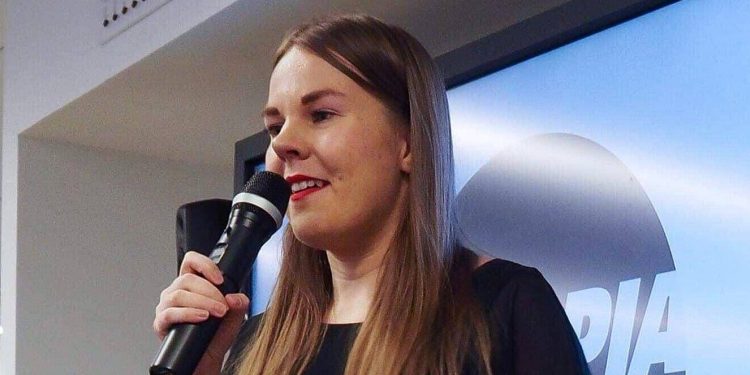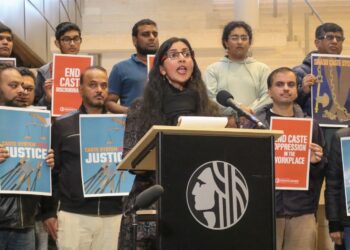A substitute member of the European Union delegation for relations with India stated on the eve of India’s 74th Republic Day celebrations that the event is “overshadowed by human rights violations.”
The statement by MEP Alviina Alametsa came shortly after a BBC documentary that placed Prime Minister Narendra Modi at the centre of India’s growing polarisation and occurrences of attacks against minorities. The Modi administration’s choice to prohibit the documentary on social media has made it front-page news worldwide.
On the eve of January 26, when the Indian Constitution went into effect 73 years ago, a Finnish Green League politician who is a member of the EU’s legislative body was participating in a virtual parliamentary briefing titled “Taking stock on constitutional rights protection in India.”
The London Story, a think tank run by Indian expatriates, which works to guarantee that democratic values and human rights remain at the heart of relations between the EU and India, held the webinar. Indian lawyers like Anand Grover, Prashant Bhushan, and Shahrukh Alam also attended The London Story’s January 23 engagement with European decision-makers.
“The celebrations of Republic Day are overshadowed by urgent human rights violations that I also witnessed when travelling in India,” Alametsa, who recently made her first trip to India to meet with lawyers, journalists, government representatives, scholars, and rights defenders, categorically stated at the event.
She said, “My wish for this Republic Day is that India will live up to the vision on which it was built, and strive to fully realize all the rights that are enshrined in its Constitution”.
Indicators of the deterioration of human rights and freedoms in India include the arrest of activists, attacks on minorities, and persecution of the media, she said, adding that both the EU and India “would have to work on these issues in our areas and acknowledge them.” In addition to being terribly tragic occurrences, police brutality and killings are also part of efforts to silence dissenting voices.
“To be a true democracy, India can’t fall into totalitarian rule. The people in India need the protection of their constitutional rights from their government, justice system and the whole society.”
She went on to say that upholding human rights should be at the core of the EU-India partnership and that India’s international partners must hold it responsible for it. She continued by pointing out that minorities’ rights are sometimes violated even in European nations, so the EU and India must cooperate in this area.
Furthermore, she reflected on her time in India, saying, “When I met these human rights defenders, I was shocked at how many of them work under very restricted circumstances, in an unpredictable and risky environment.
Their offices have been shut down; their funds were frozen. I met respectable, hard-working non-governmental organisations that now have to work totally underground. Many international organisations have been forced to leave the country. Many activists have been detained without due process and others silenced.”
The Finnish politician continued on an optimistic note, “The situation in India is deteriorating fast yet hope remains. Activists keep fighting, organisations keep operating, and free media keeps reporting. All of this work is for the minorities, the poor and those forgotten and discriminated against.”
“This year marks the seventy-fifth anniversary of the Universal Declaration of Human Rights. Similar developments shadow the celebration of human rights on a global scale, as they do in India on this Republic Day. This is why it is ever more important for the democracies of the world to work closely together as the world’s largest official democracy. India is at the heart of this cooperation. The democratic world needs India. We need to ensure that,” she added.











